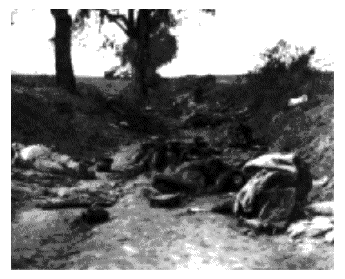The Snow
Jim Oliver
(Alyson)

Now a novel works when the characters are interesting, there is a plot that actually moves, and the writing --- and the dialogue --- are worth bothering with. By these criteria, Wings in the Snow makes it. But it does more than that: it's funny, and wise, and doesn't overdo it. Theo is gay, but there are none of those hot boring sex scenes so familiar to Alyson readers --- you remember, those filled with grunting, goggling, and far too much smegma. Dr. Theo is not only restrained and dry most of the time, he's human, and he loves doctoring. In fact, he's so gaga about it that it drives Sweet Sam away, just because he's never there. And when Sam leaves, Theo reacts just like the rest of us would:
- He lay on his side of their bed in the dark...He felt sorry for himself. He felt offended. He was a doctor. His days were used up by the needs of others. He was at the beck and call of people with scheduled needs and with needs for him which happened suddenly....He could not live the predictable life of a normal person. When he was needed, he was needed....
The events of Theo's life move the book, and move us. His sisters think their step-mother is a danger to their father, and the twist is that neither Theo nor the reader is quite sure if this is true or not. Theo fathered Natalia because Dr. Susan said he had "great genes" --- but it may have been that she said he looked "great in jeans." Susan goes bonkers, and drops his daughter off to stay with him even though he had understood he was just a turkey-baster father (he has never seen her before now). After being with Natalia for a few weeks --- weeks of her staring at the television and ignoring him are masterful presentations of a sullen, impossible five-year-old that one would love to strangle --- he wonders whether someone "switched cups" in the fertility clinic.
In other words, what the author manages to do is to play with the ambivalence of life, stuff it all together between the covers --- literal, figurative --- so it makes sense.
Sure, there are places where it doesn't make it: Theo is named as Chief Surgeon because his one competitor, a sordid sort named Garlington, is caught in a lurid sex act with a prudish lady named Dr. Steinhower. Here, the in flagrante is more an ex machina than delicto.
No matter. It's fun and funny and Wings in the Snow touches real people and real lives, and touches us in the process.
- Note:According to The Reader's Encyclopedia, Tithonus was a "beautiful Trojan (sic!)of Greek legend" who asked the gods for immortality. He, unfortunately, forgot to ask for eternal youth --- so, finally, aged and withered, he asked to die. The gods responded, as gods will, by turning him into a grasshopper. We suspect the author has stuck that name into the novel just to show us how literate he is, because it doesn't seem to have anything at all to do with the plotline, unless Theo is a closet grasshopper.
Return of
The Brute
Liam O'Flaherty
(Roberts Rinehart --- IABC)
Yet most forget that World War I was unspeakable, and many English, who had served in the trenches, had not forgotten. All wars are unspeakable --- but the trench warfare in Flanders, between 1914 and 1918, was uniquely grotesque. Multitudes of young men were wounded, gassed, or died in battles fought over a muddy terrain of fifty or a hundred yards. (During the course of the war, eight million military and six-and-a-half million civilians died --- and another twenty-one million were wounded.) The psychological effect on those who survived was profound, and terrible.
But the world had to wait for more than ten years for the defining novels to appear: Erich Maria Remarque's Im Westen nichts Neues, and, from the English-speaking world, Return of the Brute. It was O'Flaherty's book, more than any, which managed to capture the pure beastliness of it.
Nine members of the bombing squad of the Number Two Platoon are fighting on the western front --- at an unnamed bridgehead, during an unnamed battle, in an unnamed year. Included are the soldiers Gunn, who "was like a mastiff, that most ferocious-looking and most gentle of all animals;" Lamont, " a beautiful boy, with pink cheeks, dazzling white teeth like a girl and big blue eyes;" and The Coporal --- "N. 7946 Corporal John Williams, who was servile to his superiors, arrogant and cruel to his subordinates, and who moved like an eel."
It is the continuing paradox of war that drives Return of the Brute, for war is a pastime invented by civilized humans, which, apparently, is designed to turn men into beasts:
- On all sides they rose in myriads, some enormous, some small as ferrets, some with monstrous bellies, some as thin as snakes; all with protruding fangs and eyes that belched fire...
Ridiculous orders come from somewhere, telling the squad to advance, through the mud, to some unreachable goal somewhere ahead. They slog aimlessly though rain and fog and slime, not knowing where they are going, or what their orders are, until one of them falls into --- and drowns in --- a mud-filled shell hole:
- No. 8740 Private George Appleby, formerly a worker in a chocolate factory, recently a member of the bombing section of the No. 2 Platoon, at that moment ceased to exist as a living organism. He had thrown back his head and started at the sky with fixed eyes, with his tongue hanging out, thick and still and yellow, on his green lower lip. Rain drops fell into his open mouth. Then he disappeared with a gentle sucking sound into the morass....In another moment, all that was left to mark his sojourn on this earth was a series of circular wrinkles in the slime that covered the surface of the quagmire and five orphan children fathered by him, living with their widowed mother in Canning Town, London: all proudly bearing his name, that of a hero who died in action, fighting for his king and country.
 Men are commissioned to kill other men, and in the process, living in rain and mud and slime, surrounded by rats and lice, turn animal. The brute returns --- the brute in all of us, rising up from millions of years past. It's a beastly experience, and Return of the Brute encapsulates it all, and becomes --- to our eyes, at least --- one of the most powerful, artful novels to emerge from the miasma of the 20th century.
Men are commissioned to kill other men, and in the process, living in rain and mud and slime, surrounded by rats and lice, turn animal. The brute returns --- the brute in all of us, rising up from millions of years past. It's a beastly experience, and Return of the Brute encapsulates it all, and becomes --- to our eyes, at least --- one of the most powerful, artful novels to emerge from the miasma of the 20th century. In its singular way, it's as rich and as heart-breaking as its contemporaries: Miss Lonelyhearts, Winesburg, Ohio, and A Farewell to Arms --- along with the two other great English-language war novels of our time, The Thin Red Line and From Here to Eternity.
A Good
Christian Be
A Good Lawyer
Homilies,
Witnesses, and
Reflections
Thomas E. Baker and
Timothy W. Floyd, Editors
(Notre Dame)
Fifty years ago, a treatise like this would have been unthinkable, because, back in those innocent times, it would have been assumed that most lawyers in the heartland were "Christians," meaning that they attended church from time to time, didn't cheat on their wives, and --- when they stole --- at least they would have a small attack of conscience. But with the legal profession being, now, such a hot-bed of opportunists and scoundrels, a book like this can be considered necessary.
The prejudice of the editors is demonstrated by the selection of their contributors: most of these attorneys (and judges) are mainstream --- Presbyterian, Methodist, Baptist (quite a sprinkling of Southern Baptists), one Mormon, and a passel of Catholics. No fire-breathers out of the Four Square Gospel or Pat Roberts; no Quakers nor Christian Existentialists.
And, after toiling through the volume, damn little life.
They all agree being a legal Christian is a regular bother because when they meet someone and say, "Yes, I am a Christian" --- the question is always, "How can you be a Good Christian and a Good Lawyer at the same time?"
Still, with all this, there are a couple of surprises tucked away here and there. One Ashley T. Wiltshire, Jr. (great name!) quotes from Rev. Roger Thwackum in the novel Tom Jones:
- When I mention religion, I mean the Christian religion; and not only the Christian religion, but the Protestant religion; and not only the Protestant religion but the Church of England.
Great quote, but out of the mouth of one of the great religious fools in all of English literature: Thwackum was Fielding's revenge on all the Anglicans who had bothered him over the course of his long life.
Marcus G. Faust (great name!), the sole representative of the Latter Day Saints, spends a great deal of his essay (and our time) telling us what a wonderful Christian he is, and how much he's done on behalf of Utah during his time in Washington. It seems that Christian humility and Christian meekness (and voluntary Christian poverty) are not the strong suit of Faust, nor of the LDS.
On the other hand, how nice to find Nancy Miller-Herron, Catholic, who gives us a touch of whimsey, with a list of "things that seem urgent to me lately now:"
- Clearing off my desk...
- Dealing with some fairly fallen powers and principalities: the Courts, Wall Street, the U. S. Government, and the Church.
- Clearing off my desk.
- Writing this essay.
- Coordinating my child care.
- Clearing off my desk.
- Changing diapers.
- Billing hours.
- Clearing off my desk.
- Collecting for the hours I billed...
The big surprise in the volume is a lawyer who bills himself merely as "Christian," and writes the essay entitled, "Christian Life and the Law:"
- The Christian perspective in particular demands of us qualities and characteristics that at first blush seem inconsistent with lawyering skills, but reflection and experience convince me that the two are cheerfully compatible. Above all, Christian lawyering means treating one's collegues and adversaries with a profound sense of respect for human dignity...Turning the other cheek translates into not stooping to engage in sharp or questionable practices. It means respect for truth and a singleminded commitment not to play fast and loose with the truth.
Emphasis ours.
The author?
Kenneth W. Starr.
Honey,
Mud,
Maggots
And Other
Medical Marvels
Robert and Michèle
Root-Bernstein
(Mariner)